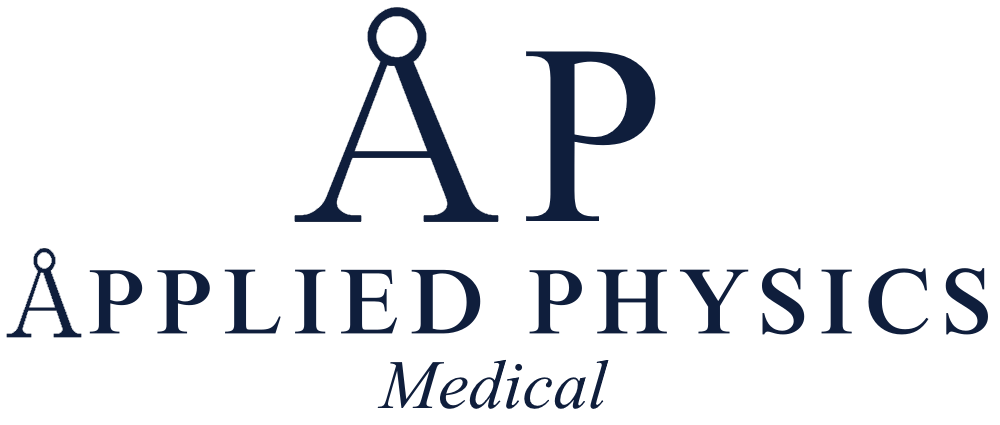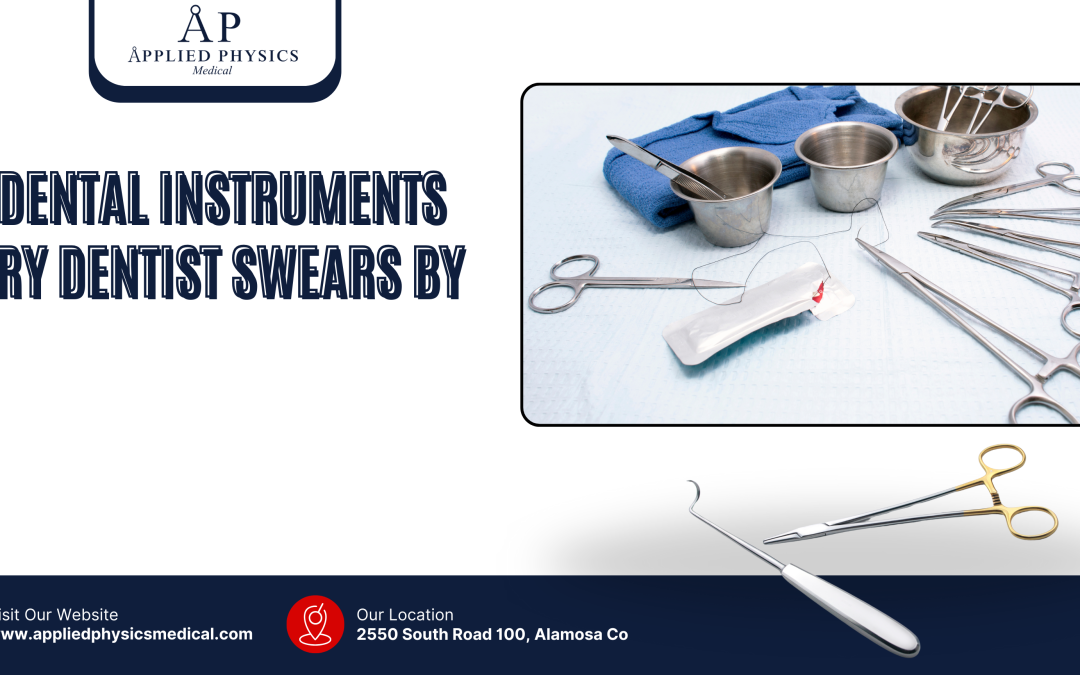Introduction
High-quality dental instruments are vital for delivering effective and efficient dental care. Dentists rely on these instruments to diagnose, treat, and prevent oral health issues in their patients. The use of high-quality instruments ensures accurate and safe procedures, resulting in better patient outcomes.
Moreover, durable and well-constructed instruments can withstand the demands of daily use in a dental practice, reducing the need for frequent replacements and saving time and resources. Moreover, high quality significantly contributes to the overall patient experience. When patients are aware that their dentist is using reliable and well-maintained instruments, they are more likely to feel comfortable and at ease during dental procedures.
This can lead to increased patient satisfaction and loyalty to the practice. In essence, investing in high-quality dental instruments is essential for both the success of a dental practice and the well-being of its patients.
Key Takeaways
- High-quality dental instruments are crucial for providing effective and safe dental care.
- Routine exams and cleanings require essential instruments such as mirrors, probes, and scalers.
- Oral surgery and periodontal procedures call for specialized instruments like forceps and curettes.
- Innovative technology in dental instrumentation, such as digital imaging and laser technology, is changing the field.
- Proper maintenance and sterilization of dental instruments are essential for patient safety.
Essential Dental Instruments for Routine Exams and Cleanings
The Dental Mirror: A Window to the Mouth
One of the most basic instruments used during routine exams is the dental mirror, which allows the dentist to see all angles of the patient’s mouth.
Assessing Gum Health with the Periodontal Probe
Another essential instrument is the periodontal probe, which is used to measure the depth of gum pockets and assess the health of the gums. Additionally, scalers and curettes are used to remove plaque and tartar from the teeth and below the gumline during cleanings.
Detecting Dental Issues with Advanced Instruments
In addition to these basic instruments, dentists also use dental explorers to detect cavities and other dental issues, as well as saliva ejectors to keep the patient’s mouth dry during procedures.
The Importance of Dental Instruments in Maintaining Oral Health
These instruments are indispensable for maintaining oral health and preventing more serious dental problems from developing. Without them, dentists would not be able to provide the thorough care that their patients need.
Specialized Instruments for Oral Surgery and Periodontal Procedures
In addition to routine exams and cleanings, dentists also perform a variety of specialized procedures, such as oral surgery and periodontal treatments. These procedures require a different set of instruments that are specifically designed for more complex dental work. For example, oral surgeons use forceps and elevators to extract teeth, while periodontists use specialized scalers and curettes to perform deep cleanings and root planing.
Furthermore, dental implant procedures require a unique set of instruments, such as implant drills and drivers, to place and secure the implants in the jawbone. Without these specialized instruments, dentists would not be able to perform these advanced procedures with precision and accuracy. Therefore, having access to a wide range of specialized is crucial for dentists who offer a full spectrum of dental services to their patients.
Innovative Technology in Dental Instrumentation
| Instrument | Function |
|---|---|
| Dental Mirror | Allows dentist to see inside the patient’s mouth |
| Scaler | Used to remove plaque and tartar from teeth |
| Probe | Used to measure the depth of gum pockets |
| Tweezers | Used to handle small objects and materials |
| Dental Drill | Used for drilling into teeth for various procedures |
| Dental Forceps | Used for extracting teeth |
| Dental Syringe | Used for administering local anesthesia |
| Dental Scissors | Used for cutting sutures and other materials |
| Dental Excavator | Used for removing decayed tooth material |
| Dental Impression Tray | Used for taking impressions of teeth for crowns and bridges |
Advancements in technology have revolutionized the field of dental instrumentation. Today, dentists have access to a wide range of innovative instruments that make dental procedures faster, more precise, and more comfortable for patients. For example, digital intraoral cameras allow dentists to capture high-resolution images of the inside of the mouth, which can aid in diagnosis and treatment planning.
Additionally, laser technology has been integrated into dental instruments for procedures such as gum contouring and cavity detection. Furthermore, advancements in materials science have led to the development of stronger and more durable dental instruments, such as titanium handpieces and composite resin instruments. These innovations have improved the overall quality and performance leading to better outcomes for patients.
As technology continues to advance, we will likely see even more groundbreaking developments in dental instrumentation in the future.
Maintaining and Sterilizing Dental Instruments for Patient Safety
Proper maintenance and sterilization of dental instruments are critical for ensuring patient safety. Contaminated or poorly maintained instruments can lead to the spread of infection and disease, posing a serious risk to patients. Therefore, dentists must adhere to strict protocols for cleaning, sterilizing, and storing their instruments to prevent cross-contamination.
In addition to following established guidelines for instrument sterilization, dentists must also regularly inspect their instruments for signs of wear or damage. Instruments that are worn or damaged can compromise their effectiveness and pose a risk to both the dentist and the patient. By maintaining and sterilizing their instruments properly, dentists can ensure that their patients receive safe and high-quality care during every visit.
The Role of Dental Instruments in Restorative and Cosmetic Dentistry
Dental instruments play a crucial role in both restorative and cosmetic dentistry, enabling dentists to perform intricate procedures that improve oral health and aesthetics. For restorative work, tools like dental drills, curettes, and composite sculpting instruments are used to remove decay, shape fillings, and repair damaged teeth, restoring function and preventing further deterioration. In cosmetic dentistry, precision tools such as dental mirrors, contouring instruments, and polishing devices help achieve symmetrical, aesthetically pleasing results. These instruments allow for detailed work on tooth surfaces, enabling subtle adjustments that can enhance a patient’s smile and confidence. The quality and maintenance of dental tools are vital, as they ensure precise, safe, and efficient care, directly impacting patient outcomes and satisfaction.
Preparing Teeth for Restoration
Dental handpieces are used to prepare teeth for fillings, crowns, and veneers, while composite placement instruments are used to sculpt and shape tooth-colored fillings.
Creating Molds for Restorative Procedures
Impression trays and materials are used to create molds of the teeth for restorative procedures.
Achieving a Perfect Finish in Cosmetic Dentistry
In cosmetic dentistry, instruments such as polishing cups and discs are used to achieve a smooth and glossy finish on dental restorations, while shade guides help dentists match the color of restorations to the natural teeth. Without these specialized instruments, dentists would not be able to provide the high-quality restorative and cosmetic treatments that their patients desire.
How Dentists Choose the Right Instruments for Their Practice
Choosing the right instruments for a dental practice requires careful consideration of the specific needs and goals of the practice. Dentists must evaluate factors such as the types of procedures they perform most frequently, the size of their patient population, and their budget constraints when selecting instruments for their practice. Additionally, dentists must stay informed about the latest advancements to provide their patients with the most up-to-date care.
Furthermore, dentists often seek input from their dental team when selecting new instruments for their practice. Dental hygienists, assistants, and office staff can provide valuable insights into which instruments are most effective and efficient for their daily tasks. By involving their team in the decision-making process, dentists can ensure that they choose instruments that will meet the needs of both their patients and their staff.
Conclusion
Cental instruments play a crucial role in providing high-quality dental care to patients. From routine exams and cleanings to specialized procedures and restorative treatments, dentists rely on a wide range of instruments to diagnose, treat, and prevent oral health issues. By investing in high-quality instruments, staying informed about innovative technology, and maintaining strict sterilization protocols, dentists can ensure that their patients receive safe and effective care during every visit.
Ultimately, choosing the right instruments for a dental practice requires careful consideration of the specific needs of the practice and input from the entire dental team. With the right instruments at their disposal, dentists can provide exceptional care that leads to healthier smiles for their patients.


